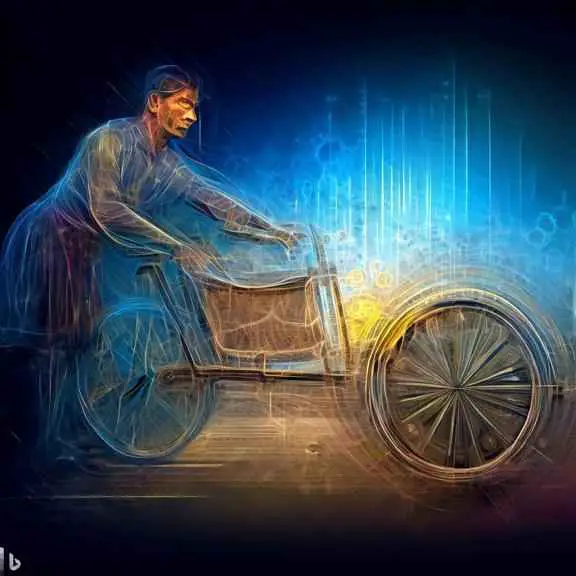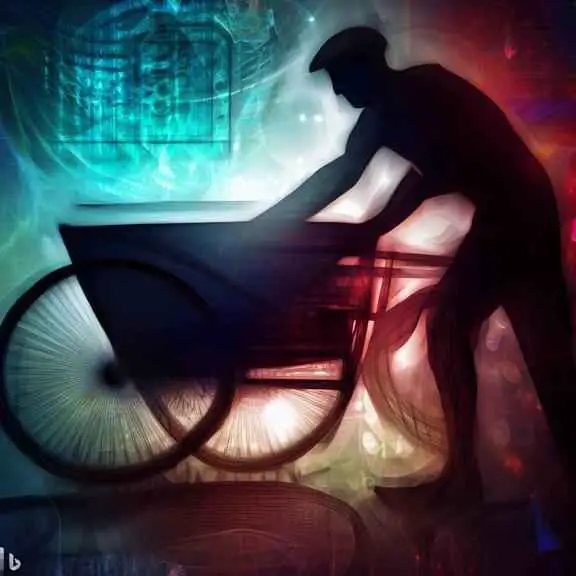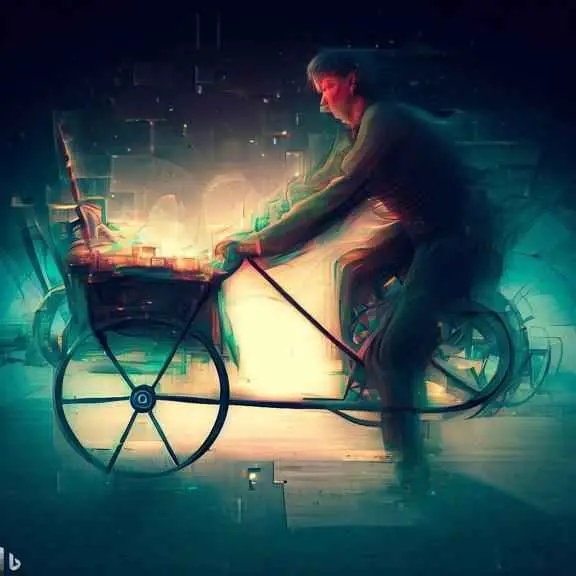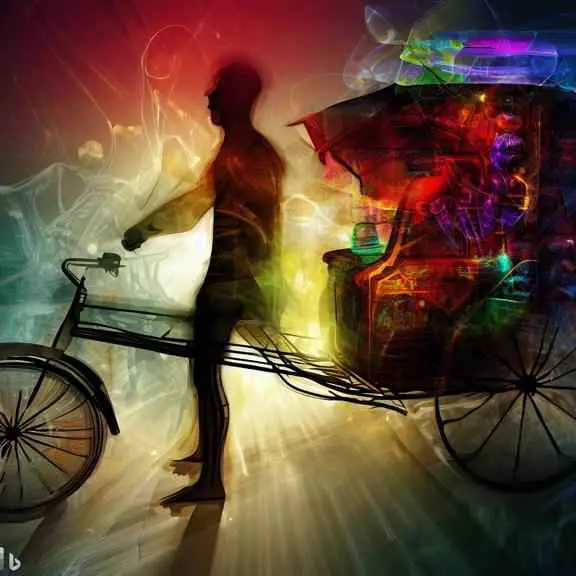Paragraph on
Rickshaw Puller
for all Class, Words
by Occupation on
A rickshaw puller is an individual who carries passengers or goods on a cycle or manual rickshaw, a small-scale mode of transport that can…, please continue reading.

Table of Content
Ad
The Paragraph on Rickshaw Puller
Ad
A rickshaw puller is an individual who carries passengers or goods on a cycle or manual rickshaw, a small-scale mode of transport that can be found in many parts of Asia, particularly in India and Bangladesh. While this profession may seem small, it has significant economic and social implications for the pullers and their families.
Most rickshaw pullers come from poor backgrounds and are often illiterate, which makes finding other jobs difficult. Nevertheless, they are typically hardworking and determined to make ends meet, going the extra mile to support their families. They wake up early to start their day and work relentlessly to earn a few rupees.
Rickshaw pullers are often seen as an emblem of the unskilled workforce, yet they play a significant role in facilitating mobility in areas where cars and buses may not be able to operate. They are an affordable and reliable means of transportation for many average citizens, and they perform the task more efficiently than cars in congested areas.
Despite the fact that rickshaw pullers work hard to make a living, they are often not respected or treated fairly. They work long hours, often in adverse weather conditions, and their income is meager. Rickshaw pullers are frequently subjected to verbal and physical abuse by both customers and law enforcement authorities. Moreover, rickshaw pullers have to contend with environmental pollution and large-scale construction projects, which can significantly disrupt their work.
In conclusion, rickshaw pullers play an important role in the urban and rural economy, yet they are often undervalued and ignored. It is necessary to appreciate the hard work and contribution of these men and elevate their social and economic status.

Questions about Rickshaw Puller
Ad
Questions and Answers:
- What is a rickshaw puller?
- A rickshaw puller is an individual who carries passengers or goods on a cycle or manual rickshaw.
- Where are rickshaw pullers commonly found?
- Rickshaw pullers can be found in many parts of Asia, particularly in India and Bangladesh.
- What is the social and economic background of most rickshaw pullers?
- Most rickshaw pullers come from poor backgrounds and are typically illiterate, which makes finding other jobs difficult.
- Why are rickshaw pullers often not respected or treated fairly?
- They are frequently subjected to verbal and physical abuse by both customers and law enforcement authorities.
- What role do rickshaw pullers play in facilitating mobility?
- They are an affordable and reliable means of transportation for many average citizens and perform the task more efficiently than cars in congested areas.
- What environmental challenges do rickshaw pullers face?
- They have to contend with environmental pollution and large-scale construction projects, which can significantly disrupt their work.
- What implications does being a rickshaw puller have for their families?
- Being a rickshaw puller can have significant economic and social implications for both the pullers and their families, as most rickshaw pullers are the sole breadwinners.
- What are the working conditions for rickshaw pullers?
- They work long hours, often in adverse weather conditions, and their income is meager.
- How do rickshaw pullers contribute to the economy?
- They play an important role in the urban and rural economy, as they are often a primary means of transportation.
- What measures can be taken to improve the conditions of rickshaw pullers?
- One suggestion is to elevate their social and economic status, by providing training programs, health care services, and other forms of support.

Vocabulary related to Rickshaw Puller
Ad
Vocabulary Words:
- rickshaw - a small-scale mode of transportation consisting of a cycle or manual cart.
- illiterate - unable to read or write.
- mobility - the ability to move or be moved freely.
- reliable - dependable and trustworthy.
- meager - small in amount or quantity; hard work that does not pay much.
- undervalued - not given enough importance or worth.
- adverse - harmful or unfavorable; negative.
- congestion - a condition where too many people or cars are in the same place.
- disruption - an event that disturbs or interrupts something.
- social - relating to society and its organization.
- economic - relating to the production, consumption, and transfer of wealth.
- breadwinner - a person who earns money to support their family.
- abuse - the mistreatment of others, often in a harmful or violent way.
- emblem - a symbol or representation of something.
- significantly - in a way that is large or important.

Structure of the sample "Rickshaw Puller" paragraph
Ad
Cohesion and Coherence:
The paragraph begins by providing an introduction to the topic and background information about rickshaw pullers. The writer then goes on to highlight the challenges and experiences of rickshaw pullers, both positive and negative. The cohesive devices such as transition words and phrases like “nevertheless” and “in conclusion” help to guide the reader from one idea to the next. In terms of coherence, the writer manages to maintain a clear and organized structure while still providing a range of information about the topic, and successfully communicates the central message of the piece.
